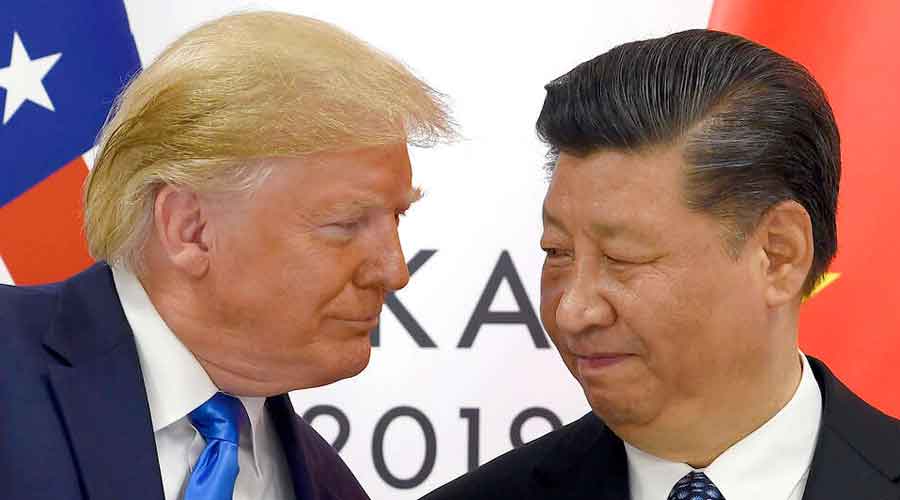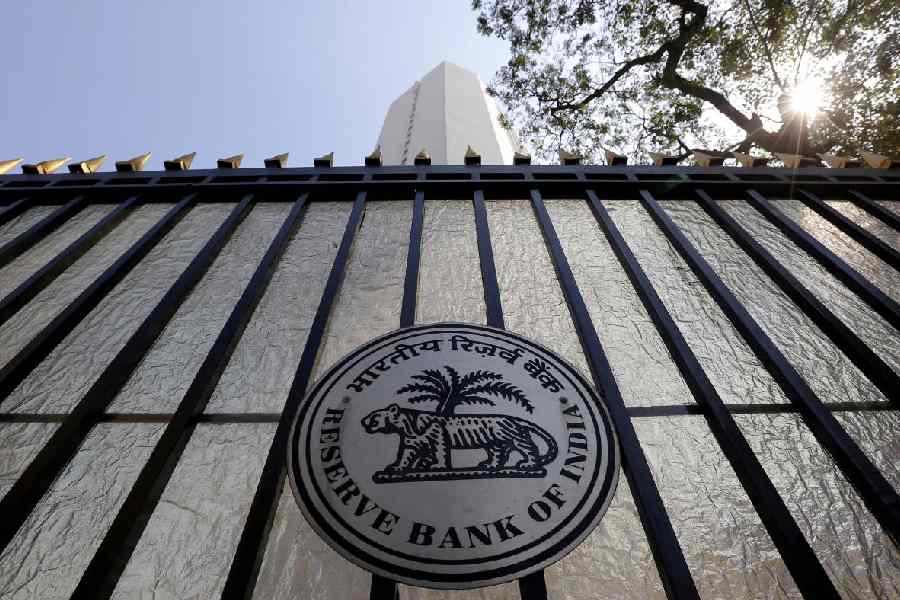Step by step, blow by blow, the US and China are dismantling decades of political, economic and social engagement, setting the stage for a new era of confrontation shaped by the views of the most hawkish voices on both sides.
With President Donald Trump trailing badly in the polls as the election nears, his national security officials have intensified their attack on China in recent weeks, targeting its officials, diplomats and executives. While the strategy has reinforced a key campaign message, some American officials, worried Trump will lose, are also trying to engineer irreversible changes, according to people familiar with the thinking.
China’s leader, Xi Jinping, has inflamed the fight, brushing aside international concern about the country’s rising authoritarianism to consolidate his own political power and to crack down on basic freedoms, from Xinjiang to Hong Kong. By doing so, he has hardened attitudes in Washington, fuelling a clash.
The combined effect could prove to be Trump’s most consequential foreign policy legacy, even if it’s not one he has consistently pursued: the entrenchment of a fundamental strategic and ideological confrontation between the world’s two largest economies.
A state of broad and intense competition is the end goal of the President’s hawkish advisers. In their view, confrontation and coercion, aggression and antagonism should be the status quo with the Chinese Communist Party, no matter who is leading the US next year. They call it “reciprocity”.
Secretary of state Mike Pompeo declared in a speech on Thursday that the relationship should be based on the principle of “distrust and verify”, saying that the diplomatic opening orchestrated by President Richard M. Nixon nearly half a century ago had ultimately undermined American interests. “We must not continue it and we must not return to it.”
The events of the last week brought relations to yet another low, accelerating the downward spiral.
On Tuesday, the US state department ordered China to shut down its Houston consulate, prompting diplomats there to burn documents in a courtyard. On Friday, in retaliation, China ordered the US to close its consulate in the southwestern city of Chengdu. The Chinese foreign ministry the next day denounced what it called “forced entry” into the Houston consulate by US law enforcement officers on Friday afternoon.
In between, the department of justice announced criminal charges against four members of the People’s Liberation Army for lying about their status in order to operate as undercover intelligence operatives in the US. All four have been arrested.
This comes on top of a month in which the administration announced sanctions on senior Chinese officials, including a member of the ruling politburo, over the mass internment of Muslims; revoked the special status of Hong Kong in diplomatic and trade relations; and declared that China’s vast maritime claims in the South China Sea were illegal.
The administration has also imposed a travel ban on Chinese students at graduate level or higher with ties to military institutions in China. Officials are discussing whether to do the same to members of the Communist Party and their families, a sweeping move that could put 270 million people on a blacklist.
“Below the President, secretary Pompeo and other members of the administration appear to have broader goals,” said Ryan Hass, a China director on President Barack Obama’s national security council who is now at the Brookings Institution.
“They want to reorient the US-China relationship towards an all-encompassing systemic rivalry that cannot be reversed by the outcome of the upcoming US election,” he said. “They believe this reorientation is needed to put the US on a competitive footing against its 21st-century geostrategic rival.”
From the start, Trump has vowed to change the relationship with China, but mainly when it comes to trade. Early this year, the negotiated truce in the countries’ trade war was hailed by some aides as a signature accomplishment. That deal is still in effect, though hanging by a thread, overshadowed by the broader fight.
In Beijing, some officials and analysts have publicly dismissed many of the Trump administration’s moves as campaign politics, accusing Pompeo and others of promoting a Cold War mentality to score points for an uphill re-election fight. There is a growing recognition, though, that the conflict’s roots run deeper.
The breadth of the administration’s campaign has vindicated those in China — and possibly Xi himself — who have long suspected that the US will never accept the country’s growing economic and military might, or its authoritarian political system.
“It’s not just electoral considerations,” said Cheng Xiaohe, an associate professor at the School of International Studies at Renmin University in Beijing. “It is also a natural escalation and a result of the inherent contradictions between China and the US.”
Already reeling from the coronavirus pandemic, some Chinese officials have sought to avoid open conflict with the US. They have urged the Trump administration to reconsider each of its actions and called for cooperation, not confrontation, albeit without offering significant concessions of their own.
“With global anti-China sentiment at its highest
level in decades, Chinese officials have indicated an interest in exploring potential offramps to the current death spiral in US-China relations,” said Jessica Chen Weiss, a political scientist at Cornell University who studies Chinese foreign policy and public opinion.
“Beijing isn’t spoiling for an all-out fight with the US,” she said, “but at a minimum the Chinese government will retaliate to show the world — and a prospective Biden administration — that China won’t be intimidated or pushed around.”
New York Times News Service










